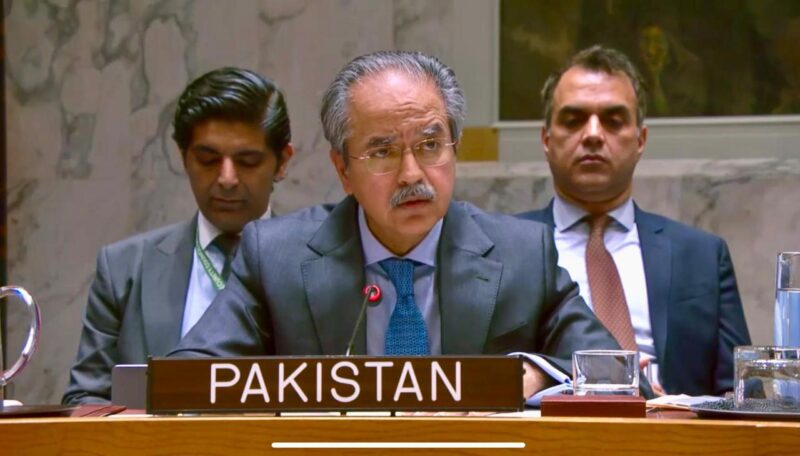Mumtaz Hussain
UNITED NATIONS: Pakistan has urged the international community to adopt a holistic approach to counter-terrorism, warning that cross-border and state-sponsored terrorism continue to threaten regional and global peace.
Speaking at a United Nations Security Council briefing on “Threats to international peace and security caused by terrorist acts,” Ambassador Asim Iftikhar Ahmad, Pakistan’s Permanent Representative to the UN, highlighted the dangers posed by groups such as Tehrik-i-Taliban Pakistan (TTP), Baloch Liberation Army (BLA), and Majeed Brigade. He said these groups have collaborated in sharing training camps and targeting strategic infrastructure, resulting in the loss of civilian lives.
Ambassador Ahmad described the TTP as the largest UN-designated terrorist group, operating from Afghan soil, and emphasized that its presence near Pakistan’s borders poses a direct national security threat. While acknowledging the Afghan interim government’s fight against ISIL-K, he warned that other militant groups remain sheltered in ungoverned spaces in Afghanistan.
He also drew attention to the global terrorism landscape, noting that Daesh affiliates are expanding in Africa, particularly in West Africa and the Sahel, while nearly 3,000 fighters remain active in Iraq and Syria. ISIL-K, with approximately 2,000 fighters, continues to pose a major threat in Afghanistan.
Pakistan’s UN envoy strongly condemned state-sponsored terrorism, citing India’s May 2025 attacks on Pakistani territory that resulted in the deaths of 54 civilians, including 15 children and 13 women. He urged the Security Council to address such acts of state terrorism and not allow them to be disguised as counter-terrorism operations.
Ambassador Ahmad stressed the importance of a comprehensive counter-terrorism strategy that addresses the root causes of extremism, human rights violations, and the misuse of counter-terrorism narratives in occupied regions, including Indian Illegally Occupied Jammu & Kashmir (IIOJK) and the Occupied Palestinian Territories.
He also highlighted the bias in international terrorism sanctions, noting that all individuals on UN Security Council terrorism lists are Muslims, while non-Muslim extremists often evade scrutiny.
Ambassador Ahmad warned against the digital evolution of terrorism, where online platforms are exploited for radicalization and recruitment, and called for unity, cooperation, and justice in global counter-terrorism efforts.
“We can defeat terrorism – by fighting it together and fighting it justly,” he said.


Comments are closed.